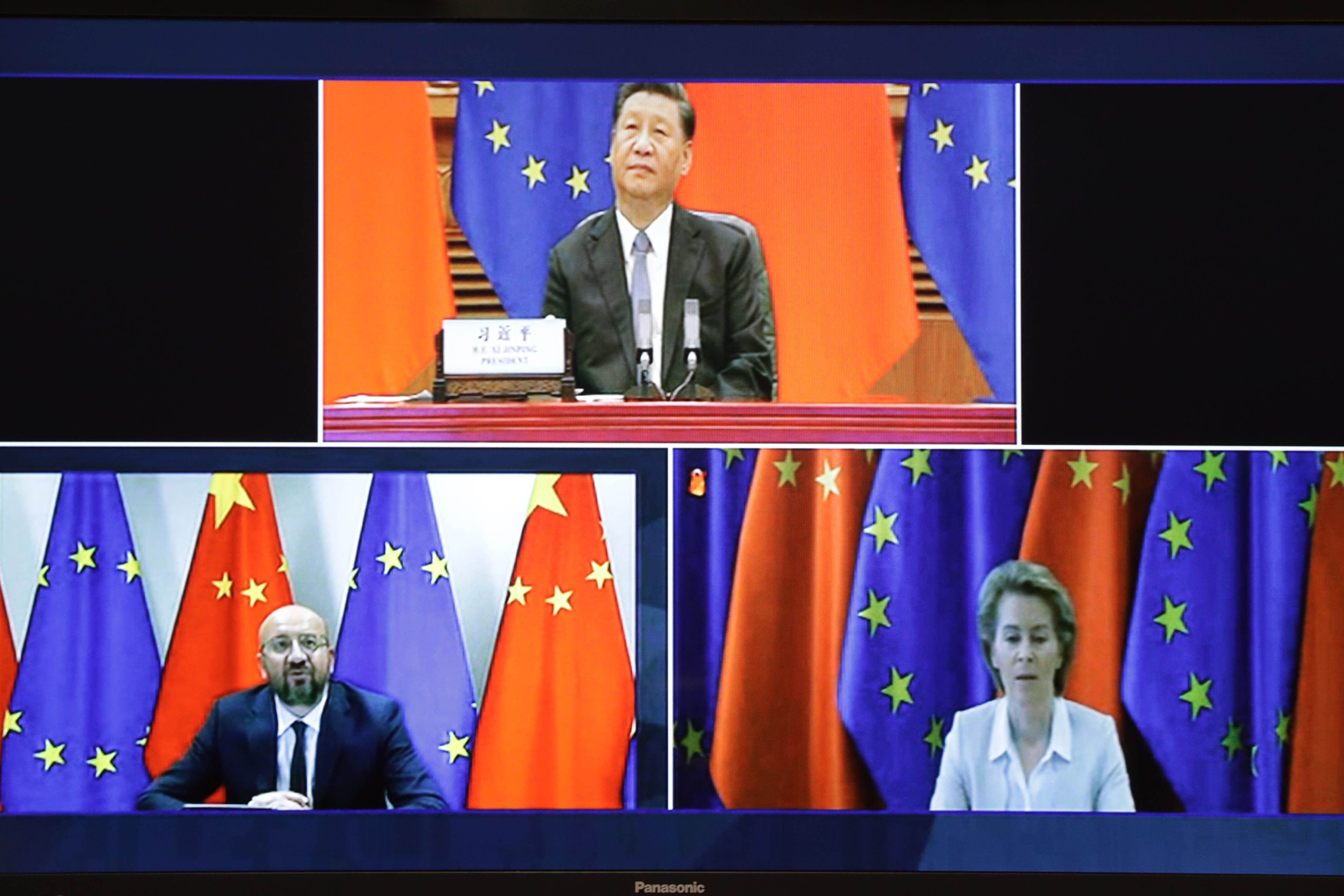An EU-China Summit of Differences

Under what circumstances was the summit held?
The COVID-19 pandemic forced the summit to be postponed from 31 March, and then in an online format. It took place in the shadow of EU-China tensions around the latter’s policy of confrontation in recent months—mainly propaganda surrounding assistance to Member States in the fight against the pandemic. China bypassed EU institutions in providing the aid, suggested a belated EU response and weaknesses in its democratic institutions, and conducted a disinformation campaign. The summit was also held amid growing U.S.-China tensions, and inconsistent messages on EU policy towards China, such as the Commission suggesting a tightened policy course while the head of the EEAS presented a conciliatory approach. At the same time, the Chinese parliament was working on a controversial national security law for Hong Kong. Just before the summit, on 19 June, the European Parliament adopted a resolution to bring China before the International Court of Justice over its actions to limit Hong Kong’s autonomy.
On what issues was consensus reached?
Only in a few cases did the sides hold similar positions. It was agreed that the official signing of an agreement, finally reached at the end of 2019, on geographical indications regarding European and Chinese agricultural products and food, which will be protected against imitations and misappropriation of rights, will take place in a few weeks. The parties also agreed to continue negotiations on an investment agreement and conclude them later this year—a deadline set in a joint statement from the previous summit. The EU continues to perceive China as a partner in global issues such as combating climate change and WTO reform but calls for concrete action from the Chinese side, such as adding a decarbonisation goal to the new Chinese five-year plan. The EU also counts on cooperation from China on Afghanistan, Africa, combating COVID-19, the nuclear agreement with Iran, and in multilateral forums.
What was not achieved and in what areas did the differences increase?
Contrary to earlier announcements, neither a joint statement was issued (as last happened at the 2017 summit) nor a programming document on bilateral cooperation until 2025 was adopted. This demonstrates the depth of the disagreement between the two sides. The reason is the lack of progress on the Chinese side in implementing the arrangements from last year’s joint statement regarding, among others, greater access to the Chinese market, limiting government subsidies for Chinese companies, and ending forced technology transfers. This year, for the first time, the EU raised the topic of disinformation and cyberattacks and presented evidence of Chinese sources. The EU also took a principled position on Hong Kong. The EC president emphasized that the issue of civil liberties and human rights is fundamental to the EU and is not negotiable.
What will EU policy towards China look like in the coming months?
The EU intends to act in accordance with a new definition of reciprocity included in last year’s “EU-China: A Strategic Outlook”. It will sharpen its economic approach until there is progress from the Chinese side. The latest EC proposals regarding restrictions in competition policy testify to this. It is possible that investment screening will be increased, for example, to block takeovers of European companies by foreign state-owned enterprises and those receiving government subsidies. Talks are underway to prevent foreign acquisitions of smaller EU companies whose value may have fallen in the wake of the pandemic. The EC will also include Chinese disinformation in the catalogue of problems that should be systematically prevented. Opposition to the restrictions on Hong Kong’s autonomy may create a platform for EU-U.S. talks, although an EU confrontational course towards China, following the American pattern, is unlikely.


